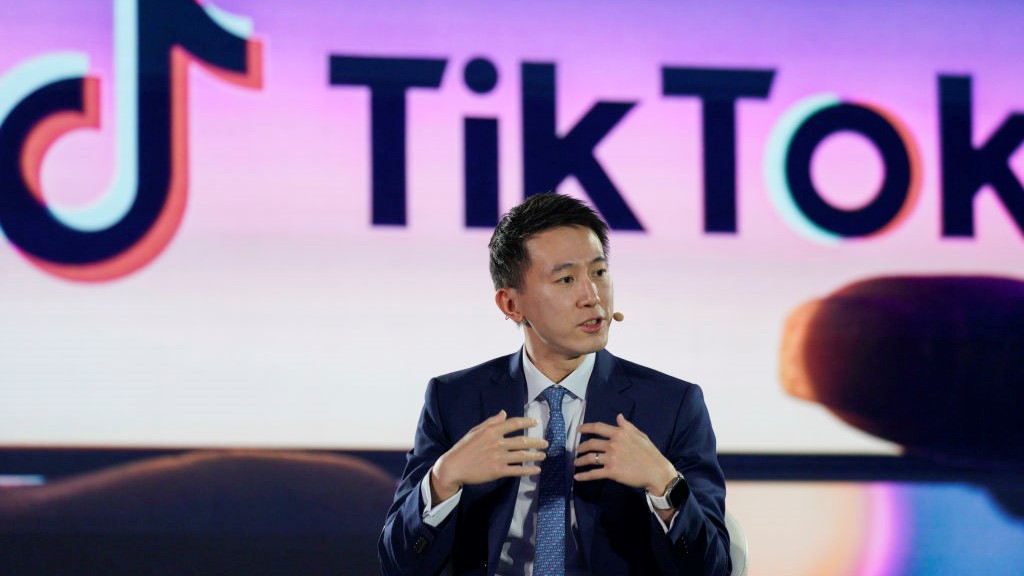TikTok CEO set to pledge app's "responsibility to protect" US users
Shou Zi Chew will appear in front of a congressional hearing on Thursday

While US lawmakers are pushing a TikTok ban for all American users, its CEO is set to pledge the company's commitment to protecting US users at a congressional hearing.
Shou Zi Chew will appear in front of the US House of Representatives’ Energy and Commerce Committee on Thursday to answer growing concerns about a possible Chinese influence over the platform.
Despite allegations, he argues that the infamous Chinese-built video-sharing app has "never shared US users data" and never will with the Chinese party.
TikTok is making headlines lately, with New Zealand and the UK being only the latest US allies to ban the app from government devices citing national security concerns.
Should an outright ban be enforced, it's likely TikTok's over 150 million US users will need to download a VPN service to keep accessing the app.
Transparency, safety and security
"There are more than 150 million Americans who love our platform, and we know we have a responsibility to protect them," reads the Chew's written testimony, after detailing how the Chinese-built app has been helping small US businesses and creators to thrive in recent years.
TikTok has been in the limelight for months as US lawmakers are increasingly seeing the app as a threat for both users' privacy and security - and these especially lie over the ties that its parent company has with China.
Are you a pro? Subscribe to our newsletter
Sign up to the TechRadar Pro newsletter to get all the top news, opinion, features and guidance your business needs to succeed!
Arguably the most downloaded app worldwide, TikTok was developed by Beijing-based ByteDance. However, Chew argues that the firm has actually evolved into a global enterprise with roughly 60% of shares coming from global investors, 20% owned by employees and the rest 20% by its founders.
"Let me state this unequivocally: ByteDance is not an agent of China or any other country," he says. "TikTok has never shared, or received a request to share, U.S. user data with the Chinese government. Nor would TikTok honor such a request if one were ever made."
To ensure US users' data cannot be accessed by foreign actors, TikTok is said to have already invested about $1.5 billion over the past year to implement the so-called Project Texas. US company Oracle will then be responsible for routing all US traffic via its servers, creating a de-facto firewall to shield Americans' sensitive information.
Oracle has also begun inspecting TikTok's source code and its algorithm to make sure that the Chinese party isn't pushing content in favor of its political agenda. However, Chew maintains that user safety is a top priority, especially for children.
Among other things, the company said to have enforced a screen-time limit of one hour for under-18s, as well as halting ads and monetization for those under-13.
In a bipartisan effort, the US government is currently pushing to ban TikTok for all American users unless ByteDance founders don't sell their shares to US companies. However, according to Chew, "a change in ownership would not impose any new restrictions on data flows or access."
TikTok isn't without blame, though.
Some employees were, in fact, found guilty of illegally collecting the IP address locations of some US journalists in December last year - an incident that certainly consolidated fears of the app being used as a spying tool.
On this point, Chew assures that was an isolated case and the company is now doing everything it can to regain trust including "strengthening policies and operational controls relating to US users data access."
ByteDance used TikTok to track my location — and the locations of two of my colleagues — to try to find our sources. We reported on this back in October, but kept things vague to protect sources. Today ByteDance admitted it, so we can say much more:https://t.co/ZFdU5BVC8HDecember 22, 2022
"I steadfastly believe that all concerns that have been raised have solutions. Bans are only appropriate when there are no alternatives," he says.
Many commentators have criticized the attempts to completely outlaw TikTok, arguing that this would curb people's freedom of speech while intensifying online censorship.
Privacy experts also think that a comprehensive data protection law, like the proposed ADPPA, should be the priority to protect US users - no matter the online platform they choose to use.

Chiara is a multimedia journalist committed to covering stories to help promote the rights and denounce the abuses of the digital side of life – wherever cybersecurity, markets, and politics tangle up. She believes an open, uncensored, and private internet is a basic human need and wants to use her knowledge of VPNs to help readers take back control. She writes news, interviews, and analysis on data privacy, online censorship, digital rights, tech policies, and security software, with a special focus on VPNs, for TechRadar and TechRadar Pro. Got a story, tip-off, or something tech-interesting to say? Reach out to chiara.castro@futurenet.com